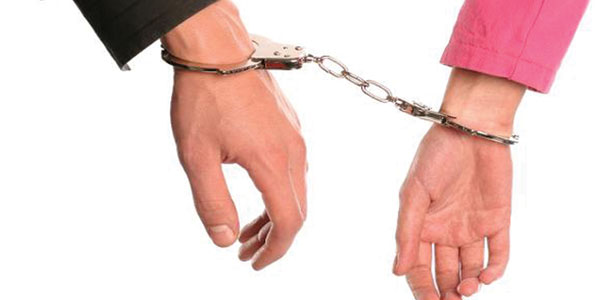
An addictive relationship is one that hurts us, compromises our physical and emotional health in a negative way, and from which, despite wanting, we can not free ourselves. In the same way that a person becomes addicted to a substance, needs and tolerates more and more amount of it to be able to feel good and “function”, the “addict to love” endure the same suffering in the relationships they establish.
How is an addictive relationship? Love is confused with “obsession”. You can be addicted to someone in particular, too many men or women, or to the search for a partner (in case of not being in a relationship). In general, they are attracted to people who are unable to establish a “healthy” relationship. They choose again and again people emotionally unavailable.
For those addicted to love, there are signs that the person needs them and will try to help, save, cure or change them with the “power of their love”. In this lies the starting point and the subsequent unhealthy dynamics of the relationship. Dynamics characterized by mutual dependence (addiction). In these relationships, there is drama, chaos, excitement, suffering and sometimes a high voltage of eroticism and sexuality “.
These people are called co-dependents and their characteristics include:
* Putting yourself in the last place: They make all the sacrifices and set aside their interests to “help” the individual on whom they depend.
* The bond and attraction for the other person increase as there are more problems in the relationship.
* Only see the positive side of the relationship, suffer from blindness and selective deafness and deny the bad parts of the relationship in front of others.
* They blame themselves if the relationship does not work.
* Suffer from panic abandonment and hence they are always willing to do anything to prevent the end of the relationship.
How do co-dependent people handle sex?
-The seduction and sexuality are the important factors in the dynamics of the relationship.
-The sexual encounters have a lot of “magic”, chemistry, romanticism, and eroticism.
– The person tries enormously to please in the sexual area. Think that sexuality will save, heal or “tie up” the person with whom you have an addictive relationship.
What happens when the co-dependent feels fear of being abandoned?
-In their anguish due to the fear of being abandoned, they start to control the relationship and as a result, they start the famous dance of “the suffocated and the abandoned”.
As the couple distances themselves, the addict reinforces their attempts by giving more “love”: it increases their focus on the behavior of the relationship and depends more and more on the effects.
-Abandons their personal interests, feels inexplicable anger and impotence, physical and psychological symptoms arise related to addiction and the stress that this relationship causes them.
Remember that addiction to love has symptoms very similar to addiction to toxic substances and that it is always advised to go to therapy to help you heal.
Cuando amar demasiado es una enfermedad
Una relación adictiva es aquella que nos hace daño, compromete negativamente nuestra salud física y emocional y de la cual, a pesar de querer, no nos podemos liberar. Del mismo modo que una persona se vuelve adicta a una sustancia, necesita y tolera cada vez más cantidad de dicha sustancia para poder sentirse bien y “funcionar”, los “adictos al amor” soportan mucho sufrimiento en las relaciones que establecen.
¿Cómo es una relación adictiva?
Se confunde el amor con “obsesión”. Se puede ser adicto a alguien en particular, a una serie de hombres o mujeres, o a la búsqueda de una pareja (en caso de no tener una relación). Por lo general, se sienten atraídas por personas incapaces de formar una pareja “sana”. Eligen una y otra vez a personas incapaces de comprometerse afectivamente, sujetos emocionalmente inaccesibles.
Para los adictos al amor, son señales de que esa persona les necesita e intentarán ayudarle, salvarle, curarle o cambiarle con el “poder de su amor”.
En esto radica el punto de partida y la posterior dinámica enfermiza de la relación. Dinámica que se caracteriza por la dependencia mutua (adicción).
Hay en estas relaciones dramatismo, caos, excitación, sufrimiento y algunas veces un alto voltaje de erotismo y sexualidad”.
A estas personas se les llama co-dependientes y se caracterizan por:
*Ponerse en último lugar: realizan todos los sacrificios y dejan de lado sus intereses para “ayudar” al individuo del cual depende.
*Aumentar el vínculo y la atracción por la otra persona a medida que haya más problemas de pareja.
* Sólo ver lo positivo de la relación, sufren de ceguera y sordera selectiva y niegan lo malo de la relación frente a los demás.
* Culparse por el fracaso si la relación no funciona.
* Sufrir de pánico al abandono y de ahí que siempre estén dispuestos a hacer cualquier cosa para evitar que la relación termine.
¿Cómo manejan el sexo las personas co-dependientes?
-La seducción y la sexualidad son los factores importantes en la dinámica de la relación.
-Los encuentros sexuales tienen mucha «magia», química, romanticismo y erotismo.
-La persona se esfuerza enormemente por complacer en el área sexual. Piensa que la sexualidad salvará, sanará o “amarrará” a la persona con quien tiene una relación adictiva.
¿Qué sucede cuando el co-dependiente siente temor a ser abandonado?
-En su angustia por el miedo a ser abandonado, empieza a querer manejar y controlar a la pareja y comienza así la famosa danza “del sofocado y el abandonado”.
-A medida que la pareja se distancia, el adicto refuerza sus intentos dando más «amor»: aumenta la concentración en la conducta de la pareja y depende cada vez más en lo afectivo.
-Abandona sus intereses personales, siente furia e impotencia inexplicables, surgen síntomas físicos y psíquicos relacionados con la adicción y el estrés que esta relación le provoca.
Recuerde que la adicción al amor presenta síntomas muy parecidos a la adicción a sustancias toxicas y que siempre es recomendable acudir a terapia para ayudarle a sanar.










